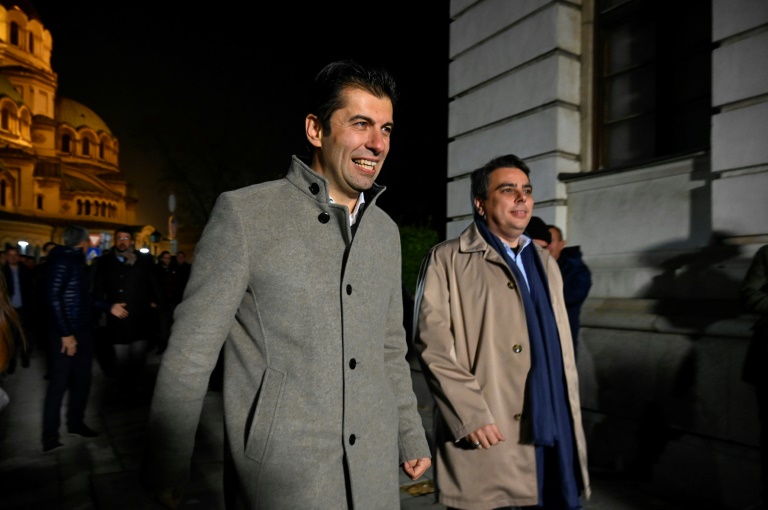Hopes were rising in Bulgaria Monday that a government can finally be formed, after the third general election in a year produced a surprise winner.
With over 75 percent of the ballots counted from Sunday’s elections, the centrist We Continue the Change (PP) formation, founded in September by two Harvard-educated former entrepreneurs, was set for a surprise win with over 25 percent of the votes.
“I hope that they will be reasonable enough to form a government… These are the third elections in a year which is too much already,” graphic designer Lyuba Yanchuleva, 67, told AFP while walking her dog in Sofia on Monday morning.
A series of scandals about misuse of taxpayers money relegated the conservative GERB party of three-time premier Boyko Borisov to second place with some 22 percent.
Elections in April and July had failed to produce a government, deepening voter apathy and pushing voter turnout to a historical low of under 40 percent, as the fourth and most violent wave of the coronavirus raged in the EU’s least vaccinated country.
Analysts were however more hopeful for a coalition this time, despite a very fractured legislature in which seven parties gained seats.
“This time we will have a government coalition of four parties,” Alpha Research analyst Boryana Dimitrova commented Monday.
Disillusioned voters were not so certain.
“Yes, the new yuppies are very likeable but who are they going to work with?” 72-year-old pensioner Petar Blagoev shrugged on Monday.
PP’s co-leader Kiril Petkov, 41, who said he’s ready to become a premier, pledged to hold talks on clear priorities with the right-wing Democratic Bulgaria, with 6 percent, and the anti-establishment ITN party of showman Slavi Trifonov, with close to 10 percent.
They will also definitely need some backing from the Socialists, who won close to 10 percent, analysts said.
– Two red lines –
The PP have already said they won’t hold any negotiations with GERB and the Turkish minority MRF party, with about 14 percent, due to their stained image after a series of corruption allegations during Borisov’s ten-year rule.
“The parties of the change have to find agreement on a minimum agenda that can be implemented in the coming months and broadened afterwards, if possible,” New Bulgarian University professor Antony Todorov suggested.
“We’ll do everything in our power to have a regular government, a coalition government.
There’s so many problems that we need to solve and we are aware of this responsibility,” Petkov told journalists after claiming victory on Sunday night before the official results were out.
Two “red lines” they would not budge from were zero corruption and reform of the judiciary, he added.
A presidential vote held together with the parliamentary elections was sent into a run-off next weekend between outgoing President Rumen Radev, garnering 49 percent of the ballots and Sofia University rector Anastas Gerdjikov, backed by GERB, with 22 percent.











